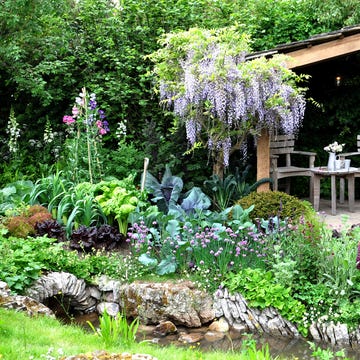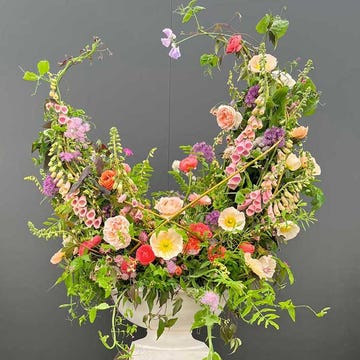The garden designer, RHS Chelsea Flower Show Gold Medallist and Gardeners’ Question Time panelist weights on the most pressing gardening questions of the moment. This time: those pesky insects...
So, here it is, the ‘Class of 25’; that group of little critters with designs on the destruction of your carefully curated and lovingly nurtured garden plot.
I exaggerate, of course. It certainly feels, sometimes, like there’s a plot afoot to undermine our horticultural efforts, but in reality, garden mini-beasts are focused more on survival, than on spoiling our fun.
What to read next
This year has been dominated by the warm dry spring, which resulted in breathtaking blossoms and now a continuation of warm summer months.
The good news is that the plague of slugs and snails that burdened us last year has subsided in the dry heat. Friends are proudly displaying their perfect hosta leaves, in, what I think will turn out to be a mistaken belief, that they have cracked that nut!
Ants
Let’s turn our attention to the insects that are prevalent this year. Ants! Note, I do not say ‘pests’, because whether you want to eradicate ants from your garden will depend on your perspective and, possibly, how many there are.
Scientific studies show us that the biodiversity, health and functioning ecosystems within a garden will benefit from ants. As they burrow, they improve soil aeration and help the decomposition of organic matter. They pollinate flowers, distribute seeds and eat the larvae of some garden pests.
However, ants do have a habit of ‘farming’ aphids in order to harvest their sweet honeydew and in doing so, they protect the greenfly from predation by the gardeners’ friend, ladybirds. So, if you have a combined ant-and-aphid issue, it is an indication that they have been successful in teaming up for their mutual benefit and the destruction of your garden.
The solution is to either reduce the ants, or the aphids or both. You can reduce aphids by spraying with dilute washing up mixture, or wiping them off by hand with same mixture. Ant populations can be reduced by using borax traps, which are only harmful to ants. Personally, I don’t think anthills in the lawn are the end of the world, but if you want an un-infested lawn, you can move them on by raking out the hills and or, applying diatomaceous earth to deter them.
Greenfly and blackfly
Greenfly and blackfly are common this year. They appear in late spring, when they enjoy the sweet sap of young plant growth, particularly on roses, sunflowers, tomatoes and brassicas. The trick is not to reach for the eradicators.
If you hold fire, the built-in homeostatic mechanisms of your garden will kick in. As the numbers of aphids rises, that triggers a rise in natural predators such as ladybirds and hoverflies. You will notice more of these in your garden, and then, subsequently you will see a decline in aphids. Don’t be put off by the threatening, spiny, black and orange appearance of a ladybird larva – they are our friends.
Horntail or wood wasps
Speaking of misunderstood garden insects, have you noticed an ‘evil-looking’ wasp lately, with a long ‘sting’? This may well be the horntail or wood wasp and that is not a sting, but an egg-laying tube on the female. They, too, are the gardeners’ friend. They hang out in woodlands, orchards and gardens – anywhere where there’s rotting wood for them to eat, burrow into and lay their eggs. They cannot sting you and they help with the decomposition of old wood. In their wanderings in search of sweet, energy-packed nectar, they also pollinate flowers.
Box tree moth
I must now mention the box tree moth and the perennial problem of its troublesome caterpillar. Some people are really ‘on it’, with pheromone traps for the adult moths and biological sprays for the larvae. Others have despaired, taken out all their box and sought alternative plants for topiarising.
If you have box plants, you’ll need a strategy. Box tree moths can be trapped in pheromone traps before they lay eggs. Like much of life: prevention is better than cure; fore-armed is fore-warned and horses for courses!














